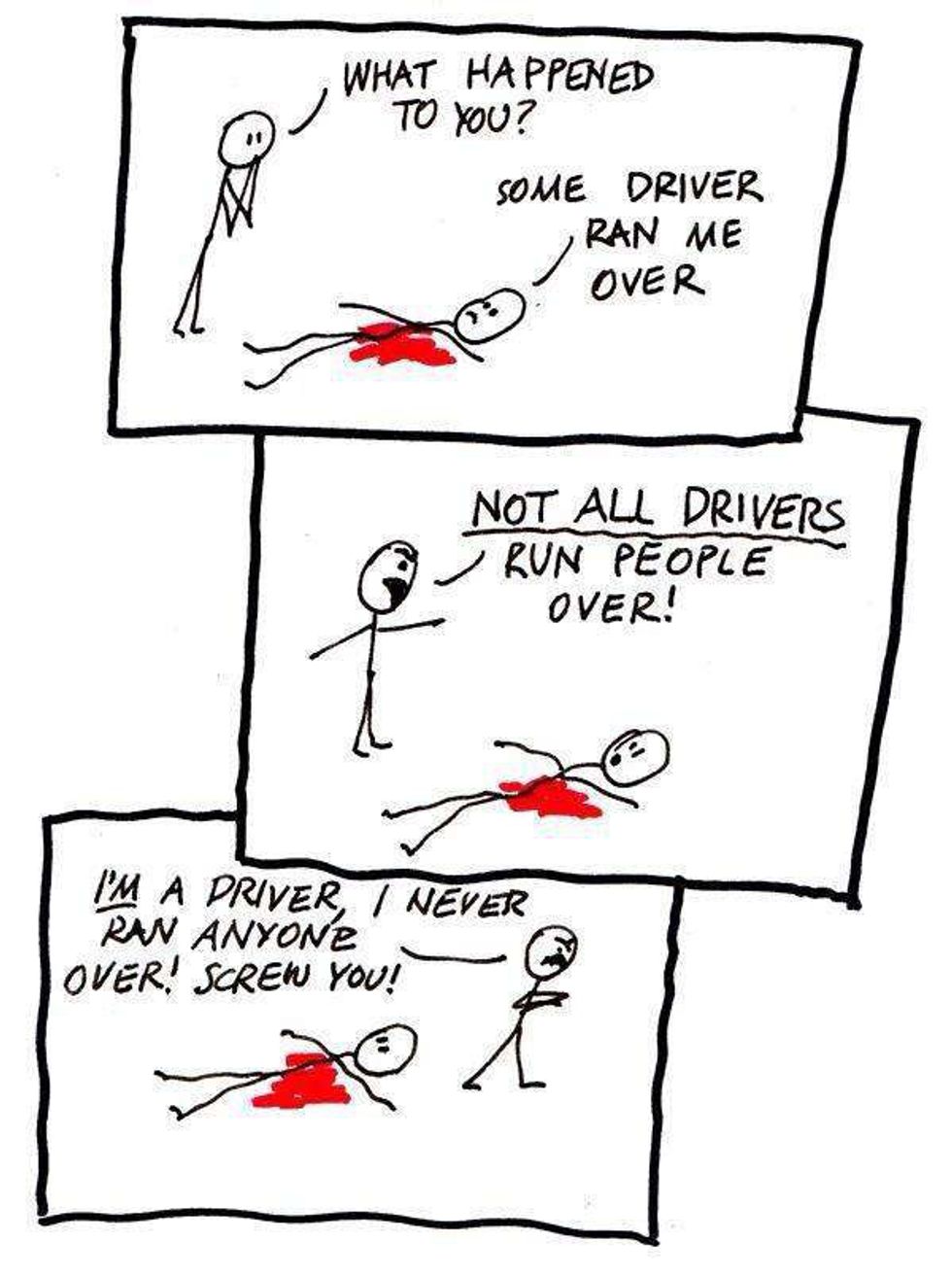I understand where you’re coming from, males who say “not all men” to women’s comments on sexist experiences. You want to be sure not to be lumped in with rapists, misogynists and generally awful people. You want to be sure that we know not to assume every man is like the sexist ones we have come across, and that it’s unfair to you to be assumed sexist just because you’re a male. Because that’s like saying all black people are criminals or all Muslims are terrorists, right?
Not exactly.
Most women you encounter that make statements about men being sexist or relaying experiences with discrimination based on gender realize that not all men do this. I recognize the existence of misandrists who truly demonize men in an aggressive way, but they are not the majority. It’s slightly insulting to our intelligence to presume the majority thinks in such absolute terms. Responding to these narratives by saying “not all men are like this” is extremely minimizing and problematic. The fact that “not all men are like this” does not change that men like this do exist. Women’s experiences with them speak to the society we live in in which women are seen as inferior in a lot of ways. To avoid addressing and listening to concerns made about how males treat females in this society, and instead complaining of a perceived generalization, is unhelpful. It makes you a part of the problem.
When “not all men” is used as a response to sexist experiences, it silences the speaker, shames them into thinking their story, possibly shared by many other women, is invalid and unimportant. If the only response you make is “yeah, but I’m not like that,” then you establish an obvious implication while also securing your place among enablers of sexism. You may not be like that, but that doesn’t mean you should not try to listen and do your part to address sexism in society. The assertion that you are not a rapist or a misogynist is not productive, and it is not a significant accomplishment. It does not give you a free pass to ignore the existence of the people who are rapists and misogynists by minimizing and attacking those who voice complaints about the female experience.
Feminist motions to change the inferiority of women and femininity in the public and private sphere require the support of both sexes. Statements about men that relay personal incidents aren’t sexist. The current and long-standing power dynamics between men and women put men above women in society, more often allowing men a voice. When men avoid validating these stories, that only perpetuates the systematic oppression of women. It may be uncomfortable to read statements about men’s treatment of women and they may seem like generalizations, but if you’re truly not a sexist or misogynistic person, there should probably not be the resentment that comes with the indignant, “not all men are like that, I’m not!”

Maybe you aren’t like that, but unless you take measures to speak up against everyday sexism when you see it—women being catcalled or grabbed in the street, jokes made about rape or “staying in the kitchen,” sexual harassment at work or public places—you’re not much better than the men in their stories. And if you are truly on the side of eliminating sexism, you might spend less time telling women “not all men,” and more time listening and standing with them.























